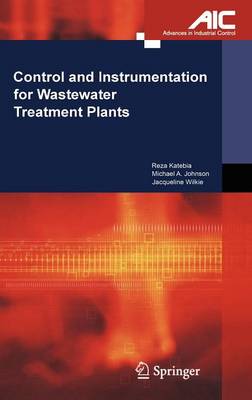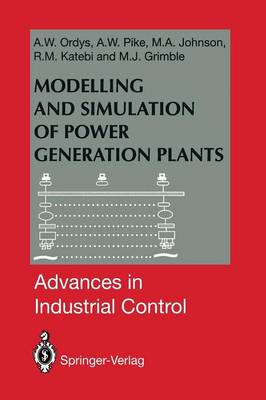Advances in Industrial Control
2 total works
Control and Instrumentation for Wastewater Treatment Plants
by Reza Katebi, Michael A. Johnson, and Jacqueline Wilkie
Published 24 March 1999
The series Advances in Industrial Control aims to report and encourage technology transfer in control engineering. The rapid development of control technology impacts all areas of the control discipline. New theory, new controllers, actuators, sensors, new industrial processes, computer methods, new applications, new philosophies..., new challenges. Much of this development work resides in industrial reports, feasibility study papers and the reports of advanced collaborative projects. The series offers an opportunity for researchers to present an extended exposition of such new work in all aspects of industrial control for wider and rapid dissemination. The environmental aspects of all of our society's activities are extremely important if the countryside; the sea and wildernesses are to be fully enjoyed by future generations. Urban waste in all its manifestations presents a particularly difficult disposal problem, which must be tackled conscientiously to prevent long lasting damage to the environment. Technological solutions should be seen as part of the available options. In this monograph, the authors M. R. Katebi, M. A. Johnson and J. Wilkie seek to introduce a comprehensive technological framework to the particular measurement and control problems of wastewater processing plants. Of course the disposal of urban sewage is a long-standing process but past solutions have used options (disposal at sea) which are no longer acceptable. Thus to meet new effluent regulations it is necessary to develop a new technological paradigm based on process control methods, and this is what the authors attempt to provide.
Modelling and Simulation of Power Generation Plants
by Andrzej W. Ordys, A.W. Pike, Michael A. Johnson, Reza M Katebi, and Michael J. Grimble
Published 6 September 1994
Many large-scale processes like refineries or power generation plant are constructed using the multi-vendor system and a main co-ordinating engineering contractor. With such a methodology. the key process units are installed complete with local proprietary control systems in place. Re-assessing the so called lower level control loop design or structure is becoming less feasible or desirable. Consequently, future comp~titive gains in large-scale industrial systems will arise from the closer and optimised global integration of the process sub-units. This is one of the inherent commercial themes which motivated the research reported in this monograph. To access the efficiency and feasibility of different large-scale system designs, the traditional tool has been the global steady-state analysis and energy balance. The process industries have many such tools encapsu lated as proprietary design software. However, to obtain a vital and critical insight into global process operation a dynamic model and simulation is necessary. Over the last decade, the whole state of the art in system simulation has irrevocably changed. The Graphical User Interface (G UI) and icon based simulation approach is now standard with hardware platforms becoming more and more powerful. This immediately opens the way to some new and advanced large-scale dynamic simulation developments. For example, click-together blocks from standard or specialised libraries of process units are perfectly feasible now.

